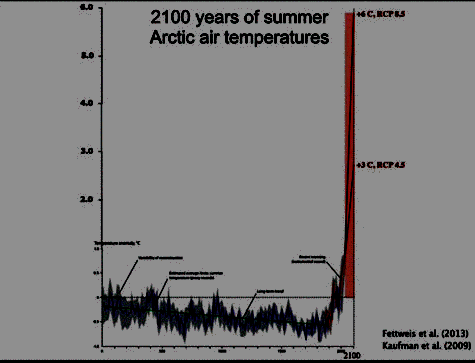Our filter is … ourselves
Yeah that’s kinda the point. That Intelligent life will eventually invent a way to eliminate itself is probably an extremely human concept though.
That’s one filter.
Yep. Our only real lasting legacy will be inventing space sharks
I’d rather say our filter was/is the carboniferous. We have too much energy for our technology level.
We have a lot of available energy everywhere when you think about it … it’s not the energy, whether abundantly available or not, around us that is the problem … it’s in how we use and abuse it all.
The problem is not the things we use, or create, or have access to, the problem is us.
The more I think about the Fermi paradox, the less interesting it gets. The great filter isn’t necessary. It’s just the distances.
The distances don’t account for the complete, total lack of evidence, though. Our civilization is detectable to dozens of light years at least, if you’re looking. And we are looking. So, the others… Where are they?
Well, presumably more than a few dozen light years away. A few dozen lightyears is nothing on a cosmic scale.
Right, a few dozen light-years is like… Less than a rounding error lol. The Milky Way galaxy alone is like 100,000 light years across, and around 1000 light years thick. If we treat the Milky Way as a cylinder, that’s a volume of roughly 8 trillion cubic light years to sift through.
Granted, a cylinder is a massively naive simplification for calculating the volume of the galaxy and probably way overestimates things. But even dropping that estimate down several orders of magnitude, billions, or even millions of cubic light years is still an unimaginably large region to search for life. And that’s just one galaxy. There’s billions of galaxies (that we know of), and some are even bigger than the Milky Way. Searching through all of that for life, especially when we don’t really know exactly what to look for, is a hilariously huge task.
I doubt any civilisation has made intergalactic travel. There are enough worlds in any galaxy that there is very little purpose in venturing to another galaxy. The distance between galaxies is also insane. Even with faster than light warp speeds it would take thousand of years to reach a different galaxy.
I definitely agree. I’m more just talking about the search for life though, not necessarily going for a visit lol. If we somehow search our entire galaxy for life and don’t find any, naturally the next step would be to start looking through another galaxy - I’m just trying to illustrate just how massive a search that would be.
It’s easy to say “we’re just separated by time and space” but that discounts why there’s no evidence of current or past life even somewhere close like Mars, where life on Earth formed after the formation of Mars. Why can’t we find simple cell fossils?
It could be that life formation is a slow process, or rare process, so that means intelligent life may be even rarer. To me that means every wasted human life and potential is a crime on a cosmic level. The most precious commodity in the universe may be the human brain, as far as we know.
If there is another intelligent species that develops space travel, then we better hope to God that they’re woke otherwise why wouldn’t we logically expect them to do to us what we do to cows or chickens.
There are habitable planets orbiting about one in five stars. So a few hundred habitable worlds in that range. Why do none of them transmit?
If I’m not mistaken, the habitable means posibility of liquid water. I’m not aware of any of those planets to be truly able to host a life as we know it. It’s always either high radiation, toxic atmosphere, tidal lock, or dozens of other things…
And how would they even transmit? We can barely talk to Voyager that’s basically on our own front lawn. A planet out-shouting it’s own star seems a bit sci-fi.
High radiation, toxic (to us) atmosphere and tidal lock don’t preclude life, though. Besides, we can’t detect such details at those distances.
If a civilization existed and wanted to be discovered at that range, we could detect their signals. Now I’m not trying to argue that life does exist, I’m arguing that the Fermi paradox still poses an interesting question. So, since we could detect a signal coming from a few hundred to a few thousand nearby planets, why don’t we? Is life rare? Is life quiet? Is there no life? Each of the possible reasons we have zero evidence for extraterrestrial life raises incredibly interesting questions that bear thinking about. Why would life be rare? Why would life be quiet? Why would extraterrestrial life have died out, etc.
The argument that the Fermi paradox just isn’t interesting is quite frankly bonkers.
“They’re just not that into you.” --galactic consensus

A theory I’ve been writing into a fiction for a while is that Earth is just the oldest planet with life on it and Humans are the most technologically advanced species in the universe. The reason nobody has contacted us is because the rest of the universe is still basically in the caveman stage. Of course, my story is set like 1000 years in the future, after we have FTL spacecraft and start finding alien life on other worlds to know this. Also: Things don’t turn out well for the aliens.
There is actually some real theories, i think kurzgesagt covered or at least mentioned it that makes a mathematical case for us to still be in the very early stage where advanced complex life can possibly form.
Maybe not the first, but one of em.
Also, if you compare the age of the universe right now to how long it will be until heat death, we are absurdly early. We’re in the first 0.0000000000000000000000000000000000000000000000000000000000000000000000000000000000000001% of the universe’s lifespan.
Oh for sure. My own hypothesis or twists on them generally come from actual things I’ve heard or read about, and I do watch a lot of Kurzgesagt. Even completely baseless ones, like Creationism, has some interesting ideas perfect for fiction to explore.
Thing is, the universe is really really really fucking big and old. There might have been a million other super advanced societies throughout the universe space and throughout the universe life, but the chances of us knowing about them would still be negligible.
There are tens of billions of planets just in the milky way, most of them probably at least 5 billion years old. And there are hundreds of billions of galaxies in the universe, if not trillions. The nearest one is 25,000 light years away. Do the math.
The chances of life existing elsewhere are pretty much 100%. The chances of us ever knowing about it are pretty much 0%.
SPOILERS!
Sounds like a good story. A lot of SF has a forerunner civilization concept, but I can only think of a couple that present anything about their early stages.
Hopefully I actually finish something other than a bunch of worldbuilding that ultimately doesn’t have any stories set in it…
One of my DMs ran a campaign in his world, specifically to have a story because he had been world building for 6 years at that point. Might be something to consider, obviously you’d probably need a system other than D&D, but there are loads of Sci Fi systems out there that could probably be adapted to your world.
That’s also how the first Dragonlance novels were written.
My setting would be perfect for Shadowrun. And it’s been about 6 years… Hmmm…
There ya go. Go recruit some
GhostwritersPlayers!
Let’s just hope the humans you are writing have moved past capitalism
NOPE! It’s a cyberpunk dystopia. We’re spreading crapitalism across the universe, like a plague!
The other thing I’m trying to do with this is have non-human primary character heroes in a world where humans exist, because I’ve never seen that in other fiction before. Avatar (the James Cameron film) was close; but the protagonist is still technically a human.
So Warhammer 40k but the emperors original crusades before the Horace heresy?
That’s what your first paragraph brought to mind lol.
All I really know about Warhammer is that orks can collectively bend reality, and space is haunted.
Honestly you should look into it. I have a feeling you’d enjoy it.
I think Vonnegut wrote something similar about Mars. Been years since I read it.
It was that bad.
The table along with the tableware resembles a face with a hint of dread.
I once made feta, blueberry and rosemary stuffed chicken thighs… My captive guests would have felt very comforted by this comic that night.
Some things shouldn’t be overcome.
How do you even stuff only the thighs?
Under the skin, I suppose? I’ve done that with boursin, then wrapped in bacon and roasted for about 30 minutes. Really nice dish
Made a slit in the side and removed the bone and then filled the cavity with the filling and closed the other end with twine.
Less nice dish.
What if the Great Filter is explained by civilizations gradually declining in reproduction due to societal and climate factors, leading them to stagnant or collapse before they can reach interstellar exploration?
There are already countries experiencing population decline which suggests this could be a real, observable trend.Let’s be honest though, the ruling class would never allow it. They would ensure reproduction by force, if necessary.
It’s certainly a thought experiment, though.
That is a very human centric way to approach it. For starters, we don’t even know if other life has to be carbon based, let alone in which environments it exists. There could be an entirely different ruleset to their reproduction and of course their society. And even ignoring all these things, they could simply advance a lot faster, outpacing climate change and declining populations. Heck, we could be outpacing these problems if we never stopped puring endless ressources into space travel, but alas, capitalism deemed it unworthy.
Yes, as a human, i usually have human-centric thoughts.
You are right, of course.
Sorry for sharing my thoughts.
Don’t apologize, I didn’t mean to invalidate your thoughts. Until we’ve found other life, everything is possible. Maybe they all are slightly different humanoids with similar problems. In fact, many theories about why we haven’t found anything yet are based on the very same assumption.
I just meant to add some additional food for thought.
It’s fine, I’ll just go cry.
No, no worries. lol
I recognize that realistically that’s not reasonable on a universal scale, even if humanity were to follow that path. It’s just an interesting thought experiment.
It’s hard to beat carbon as a building block though.
In theory, other elements are possible. There’s even a list available on wikipedia.









